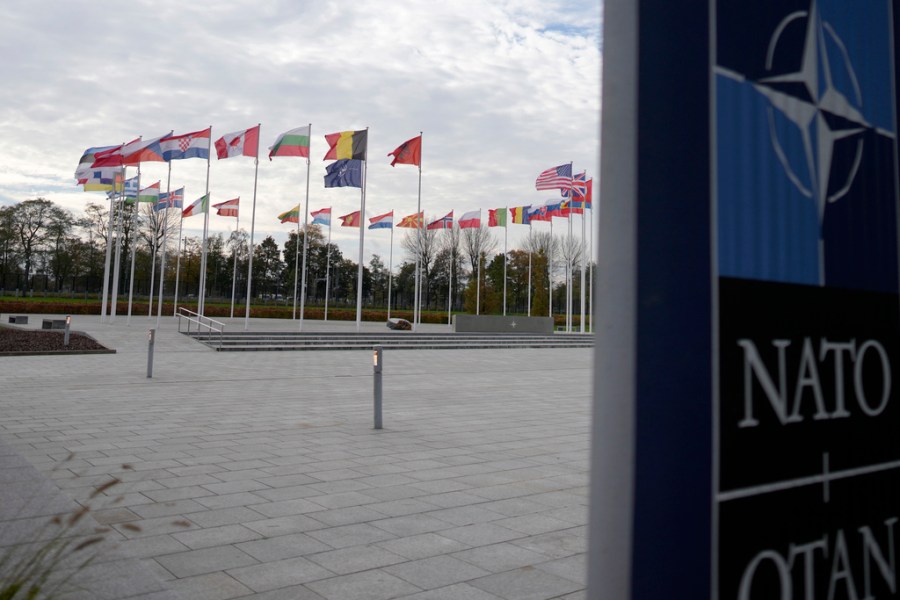
On July 18, 1955, 158 members of parliament from the then-15 member countries of NATO gathered at the Palais de Chaillot in Paris to affirm their conviction that security is best assured when it is firmly rooted in democracy.
It was as clear then as it is today that the collective defense of Europe and North America, guaranteed by NATO, requires the active engagement of allied citizens through their elected representatives. From that conviction, the NATO Parliamentary Assembly was born.
For 70 years, the assembly has carried forward the voice of allied legislators on key priorities for transatlantic security and prosperity. It today brings together 281 members of parliament from the 32 NATO member countries. It is the essential link between the alliance and its 1 billion citizens.
As we enter NATO’s 70th anniversary year, the assembly’s role in reaffirming and defending NATO’s shared democratic values is more vital than ever, because our peace, security and democracy are under attack.
They are under attack in Ukraine, where Moscow — helped by its accomplices in Minsk, Beijing, Pyongyang and Tehran — seeks to crush the aspirations of a free and independent people to determine their own democratic future.
They are also under attack in our own countries. Every day, Russia, China, Iran, North Korea and their autocratic friends seek to influence our politics and elections, spread disinformation, undermine trust in our democratic institutions and disrupt our critical infrastructure, undersea energy and communication cables and other essential services through cyberattacks and other acts of sabotage. These are not isolated acts. They are part of a well-organized campaign of subversion.
The way the allied community of democracies responds to this fundamental threat will shape the international system for decades to come. To restore peace in Europe and to defend our democratic way of life, we must rally our citizens around an agenda for peace, security and democracy, with NATO as the cornerstone and guarantor of our collective defense and shared democratic values.
First of all, we must bolster our unique transatlantic bond. The ties binding Europe and North America through NATO were born out of the tragedy of World War II. The remarkable commitment enshrined in Article 5 of the NATO Treaty to defend each other against attack has kept our people safe for 75 years. However, this bond should never be taken for granted. It must be nurtured, so that neither Russian President Vladimir Putin nor any other autocrat will ever step over that red line.
Even though recent years have seen significant change in many European countries, for too long, Europe has failed to pull its weight in this alliance. It has enjoyed the benefits of peace under the United States’ security umbrella while falling woefully behind in meeting essential defense spending obligations.
European allies must now step up and strengthen their contribution to transatlantic security and our collective defense industry capacity. There is no peace without strong and credible defense and deterrence, and that is only possible with more investment in the defense capabilities that Europe so urgently needs.
Secondly, Europe and North America must increase support for Ukraine. Ukraine is fighting for our values, for a world ruled by right rather than might. This war is the existential struggle of our generation. Russia shows no interest in a fair and just peace. If we allow Russian aggression to succeed, we risk catastrophic consequences around the world.
Thirdly, we must face up to the threat that Russia, China and other autocracies pose to our democracies. If we fail in this essential endeavor, we put at risk the very freedoms and institutions that have underpinned our democratic societies in the post-World War II era.
As parliamentarians, we are on the frontline of an increasingly fraught struggle to defend our democratic way of life. NATO must be too. This is why the Assembly has called for the establishment of a Centre for Democratic Resilience at NATO headquarters for allies to share best practices and experience. To counter the global autocratic onslaught and defend the rules-based international order from subversion, we must also engage more actively with major non-aligned democracies around the world.
The collective defense pledge in Article 5 remains the backbone of the NATO Alliance. However, the NATO treaty’s preamble and Article 2 also commit allies to safeguard democracy, individual liberty and the rule of law, and urge them to strengthen their free institutions. Today more than ever, the NATO Parliamentary Assembly is committed to delivering on that promise, standing resolutely to defend peace and security, firmly grounded in our shared democratic values.
Marcos Perestrello de Vasconcellos is president of the NATO Parliamentary Assembly.












